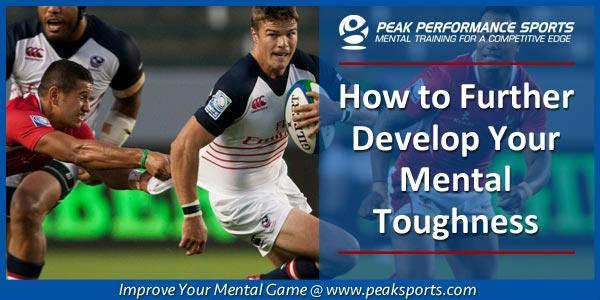How Do You View Mental Toughness?
Do you admire certain athletes for their “mentally tough” play?
Do you wish you were more mentally tough in competitions?
Athletes are constantly told by coaches the importance of being mentally tough in competitions, but are unclear on its meaning; let alone how to develop mental toughness.
Many athletes view mental toughness as a genetic trait believing some athletes are just born with the trait for mental toughness.
These athletes often feel they are not capable of becoming more mentally tough which only serves to lower an athlete’s self-worth and confidence.
While personality does contribute to mental toughness, you can raise your level of toughness through disciplined, effective strategies.
If you define the characteristics of mental toughness, you can learn ways to strengthen your “mental toughness” skills through consistent practice.
Jim Golby and Michael Sheard conducted research to investigate the area of athletic mental toughness in their study published in the journal Personality and Individual Differences (2004), “Mental toughness and hardiness at different levels of rugby league.”
The aim of study by Golby and Sheard was to investigate the relationship between mental toughness of rugby players and their level of at which they perform.
Mental toughness is the one mental skill most frequently identified as the key contributor to peak sports performance.
Golby and Sheard found that mentally tough performers distinguish themselves on three interrelated levels: (commitment, challenges and control).
- Mentally tough athletes tend to be more committed to their sport. Mentally tough athletes view potentially difficult situations as opportunities for personal and professional growth, and not as a threat. Mentally tough athletes don’t give up on themselves or their sport when faced with problems, pressure, mistakes and competition.
- Mentally tough athletes view adversity as a challenge and respond positively to pressure in ways which enable them to remain feeling relaxed, calm and energized. Mentally tough players are more able to cope with highly stressful sporting contests and maintain high levels of competitive performance. Mentally tough athletes have developed the ability to focus and block out distractions.
- Mentally tough athletes believe control their own destiny and remain relatively unaffected by tough competition or adversity. Mentally tough athletes feel more able to positively influence the outcome of competitions allowing them to view competitions in a less stressful manner. Mentally tough athletes are better able to keep their emotions in control and remain calm under pressure situations. If they momentarily lose their composure, mentally tough athletes are better equipped to regain psychological control.
So, in theory, all of this sounds great. The big question is how to develop the commitment, challenge and control aspects of mental toughness.
It is important to remind yourself that nothing happens overnight and any progress towards mental toughness will benefit your performance.
Try these tips to further develop your mental toughness:
- Tip #1: You want to examine your attitude about adversity. Challenge those beliefs that hold you back from excelling during critical moments in competition. Debate your fears. Remind yourself that challenges help you grow as an athlete and a person.
- Tip #2: Learn to use your emotions to your advantage in competitions while remaining in the present moment. Peak performance is all about focusing in the moment on the task at hand!
Successful athletes have learned how to eliminate distractions and boost concentration in competition!
We’ve created The Focused Athlete Workbook Program to help you do this.
Related Sports Psychology Articles
- Mental Toughness as an Underdog
- Mental Toughness Tips for Athletes
- The Importance of Mental Toughness
*Subscribe to The Sports Psychology Podcast on iTunes
*Subscribe to The Sports Psychology Podcast on Spotify
Download a free sports psychology report to improve your mental game!
Learn more about our one-on-one mental game coaching.
The Focused Athlete

It’s probably no secret that you have many opportunities to become distracted in sports. Athletes are bombarded with both internal and external distractions everyday in practice and competition. Focused athletes are able to get the most from their skills because they are more efficient with practice and more concentrated in competition. Athletes who lack focus let distractions run wild through their mind and don’t know how to adjust or refocus.
The Focused Athlete was developed for any level coach, parent, or junior to professional athlete who wants to improve performance and gain a competitive edge. It does not matter if you are a fledgling junior athlete; or a seasoned professional, plagued with distractions; or you just wanting to learn how to improve concentration…
“The Focused Athlete” is a complete system to teach you how to focus like a champion and harness the power of a zone focus every time you step on the playing field, court, track, or course in practice and games!


It’s okay to be frustrated when you don’t play as well as you know you can. But a mentally tough athlete also knows that they can bounce back immediately and play their best, no matter what just happened. Don’t get stuck in your own head!